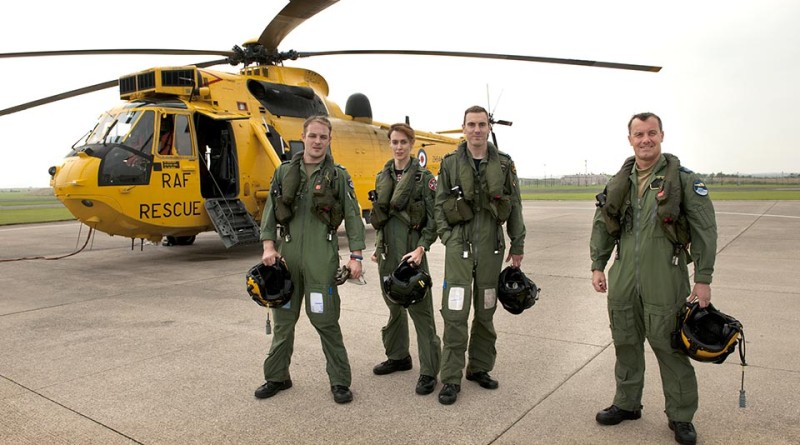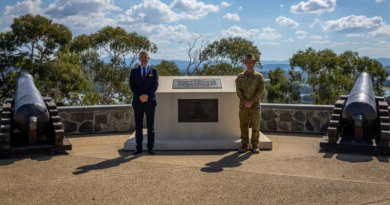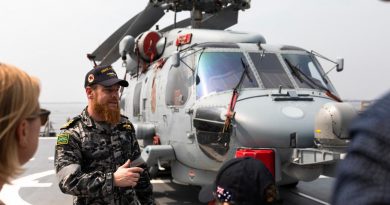Last RAF Search and Rescue mission

More than 74 years of continuous life-saving search-and-rescue operations by the Royal Air Force in the UK came to an end yesterday.
On Sunday 4 October at 1:00pm the RAF Base Chivenor duty search and rescue crew was formally relieved from its standby commitment by the United Kingdom Aeronautical Rescue Coordination Centre.
Chivenor is the last of the RAF’s six SAR bases to hand over responsibility for helicopter search and rescue provision to civilian contractor Bristow Helicopters Ltd.
Official RAF SAR statistic record-keeping only began in 1983, but since then , these six RAF units have completed 34,025 callouts and rescued 26,853 persons in distress.
These figures do not include rescue sorties and persons assisted by some of the other RAF SAR helicopter bases which have closed or been relocated over this period.
Similarly, they do not reflect the numbers assisted between the early 1950s when helicopters came into use as a rescue platform by the RAF and 1982, but a significant, further number of people were rescued and sorties flown over this period.
The telephone call authorising the RAF to finally stand-down from SAR operations came moments after both of Chivenor’s Sea King helicopters touched down.
The call was received by Wing Commander ‘Sparky’ Dunlop, Officer Commanding 22 Squadron.
Immediately after receiving the call, Wing Commander Dunlop walked a few paces from his office to pass on the news to his staff, taking the opportunity to thank them for their immense contribution and life-saving achievements.
The finale for RAF Search and Rescue in the UK was very much ‘business as usual’.
Chivenor’s final search and rescue operation took place in the early hours of Sunday, 4 October 2015. At 03:18 am, staff at the UK Aeronautical Rescue Coordination Centre received a request from Devon and Cornwall Police asking for a RAF SAR helicopter to take a 38-year-old male, found unconscious on Ilfracombe Beach, to hospital as getting a casualty on a stretcher away from the beach was described as ‘challenging’.
Chivenor’s crew was tasked at 03:21am and were on scene shortly before 4am. The casualty was flown to Swansea Morriston Hospital, after which the crew of “Rescue 169” flew to Cardiff Airport to refuel.
Dense fog there prevented their departure, so a second RAF SAR crew was brought to readiness at Chivenor and took over the commitment, providing the final few hours of RAF SAR standby duty in the UK.
The Sea King at Cardiff flew back to Chivenor, landing at 12:07pm.
The last operational SAR flying sortie in the UK was captained by Flight Lieutenant Christian ‘Taff’ Wilkins. He and his crew flew a routine training sortie on Sunday morning before touching down precisely at 12:30pm.
Both crews met in Chivenor’s ready-room before Wing Commander Dunlop received the telephone call advising him that he and his crews were stood down from UK SAR operational commitments.
Group Captain Steve Bentley, RAF Search and Rescue Force Commander for the UK said it was with enormous pride that the RAF could reflect on the its life-saving achievements since rescue operations began in 1941.
“Thousands of lives have been saved and individuals reunited with their loved ones through rescue missions often flown in the most difficult and extreme conditions,” Group Captain Bentley said.
“This continuous operational standby commitment has been delivered day-on-day across eight decades through the dedicate, selfless commitment and the determined pursuit of the highest professional standards of our aircrew, engineers and support staff.
“Today’s crews reflect the ethos of the ‘service first’ established by their fore-bearers in the RAF Directorate of Air/Sea Rescue.
“They can take great pride in the contribution they have made in the service of the nation.”
.
.

.
.






